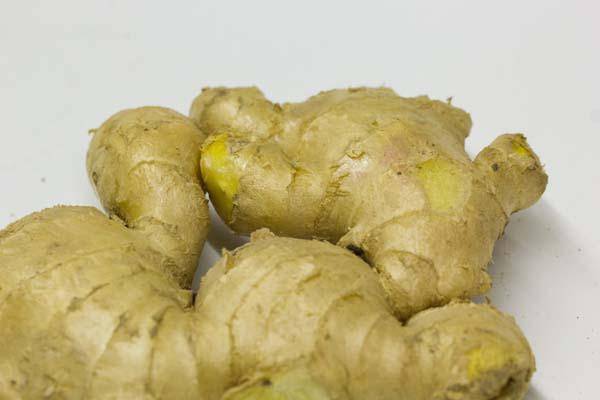Ginger is a common seasoning we use when cooking, such as when grilling meat or fish, ginger is essential as it helps to get rid of the fishy smell. Some people like to pickle ginger and eat it as a side dish with rice, it tastes crunchy and goes well with rice. Furthermore, some people, after catching a cold, would simmer some ginger water to drink, which helps raise body temperature, inducing sweating to treat illnesses.
Recently, there has been a lot of online discussion about whether ginger should be peeled or not. Traditional Chinese medicine points out the “taboos” of eating ginger, so it’s best to understand them before consuming.
As ginger has an irregular and bumpy appearance, with no set shape, many people usually do not remove the skin while cooking. They wash it clean and slice it for use. Regarding the discussion among netizens, indeed there is a difference in the effects of eating peeled and unpeeled ginger. Eating unpeeled ginger can help reduce internal heat. If you have been feeling irritable lately or have inflammation in your body, eating ginger helps with diuresis, eliminating toxins from the body and reducing swelling.
If you eat peeled ginger, it may promote bowel movements, leading to symptoms of diarrhea. Some people may have poor digestive functions, and since many people nowadays have some form of gastrointestinal diseases, if they have a cold constitution, eating peeled ginger could worsen their condition by increasing the coldness in the body.
This brief analysis explains the debated issue of whether or not to peel ginger. Everyone’s constitution is different, so it’s best to choose according to personal needs. However, since most people only use ginger as a seasoning and not as a daily staple, the consumption is limited, making it less critical how it is consumed.
Ginger can enhance appetite and help in the treatment of illnesses like colds. However, its taste is strong and can be stimulating, so a few points to note when eating it:
Avoid eating rotten ginger. Just like other vegetables, ginger can spoil if kept for too long. While the spoilage may not be visible on the surface, cutting it open could reveal obvious signs of decay. Spoiled ginger may contain a toxic substance called safrole, along with various bacteria. Accidentally consuming such ginger could cause significant harm to the body, leading to symptoms of diarrhea.
Ginger does have its benefits, but it’s advised not to consume too much at once. Some people who enjoy health preservation might unknowingly eat excessive amounts of ginger, as it contains a lot of fiber and is stimulating, leading to heatiness if consumed excessively, which is best avoided for those prone to constipation.
Ginger is a warming food and has a heating effect when ingested, so individuals with excessive internal heat are advised to consume it in moderation to prevent exacerbating issues such as bad breath and excessive sweating, as it could worsen the heat in the body. It’s preferable not to consume ginger at night, especially before sleeping. Some people like to drink ginger tea before bed to rid the body of coldness, but as ginger is stimulating, consuming it may disrupt sleep, hence best avoided at night.
Ultimately, whether peeled or unpeeled, ginger is safe to eat. Just be cautious, as ginger has health-preserving properties, but consuming it improperly can be harmful and detrimental to one’s health. Another highly discussed topic about ginger is whether it promotes hair growth.
An experienced Chinese medicine doctor firmly states that ginger does not promote hair growth but may harm the scalp hair follicles, causing secondary damage. Some people have heard folk remedies claiming that rubbing ginger directly on the scalp can promote hair growth. Initially, it may cause a burning sensation on the scalp, indicating the stimulating effect of the substances in ginger, enhancing blood circulation, seemingly promoting hair growth.
However, after expert research, it’s been found that the main active ingredient in ginger, 6-gingerol, not only does not benefit hair growth but may inhibit it, leading to shrinkage of the hair follicles and severe hair loss. Therefore, it’s advisable not to experiment recklessly and opt for scientific treatments to speed up recovery from illnesses.


